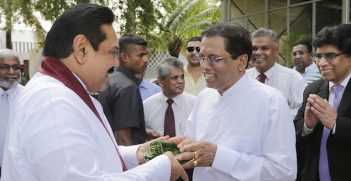Election 2016: Diaspora Key to Australian Innovation

Innovation is a central theme of the 2016 Australian election campaign and ideas for rebooting the economy are on top of the agenda. Leaders need to tap into Australia’s multicultural diaspora for innovative ideas.
Australia has resources that are richer than the wide brown lands, bounteous oceans and minerals that are the envy of the world. Waves of immigration from distant lands have resulted in a cultural melting pot that has made Australia the best place to be. Government policies such as multiculturalism and the selection of migrants with STEM skills, especially in engineering, information technology and medical sciences in the past 30 years, has meant that Australia has benefited significantly from the value of the education brought to the country and the energy and enthusiasm of new Australians ready to make a contribution. In particular, the diaspora from Asia, especially India and China, are a potent economic force with the particular attributes that Australia has recognised as being vital to its future. They overwhelmingly have STEM skills in science, engineering, medicine and information technology which are recognised as essential for the jobs of the future.
Successful multicultural policies have resulted in a diaspora that is proud of its heritage and the links with their country of birth while being proud Australians. The links of family, language and culture facilitated by modern communication technologies enables the diaspora to maintain active networks in their countries of birth. Asian Australians in particular are a powerful source of connections who can be leveraged as Australia increasingly looks to Asia to participate in the next great economic boom, which is on its doorstep.
The results of the recently released ACOLA report, published in May, confirm the results of other studies including the 2015 study by the Diversity Council of Australia, which showed the strong case for an Asia-capable workforce. It will benefit business performance and innovation as well as facilitate access to the enormous middle class market on Australia’s doorstep. Australia’s Asian diaspora has the required deep cultural, language and STEM skills for such engagement, yet its potential remains underutilised and underrecognised. The highly educated, entrepreneurial, energetic diaspora have a can-do attitude and are active participants in developing innovations and launching companies that are rapidly going global. It is essential for Australia to recognise the importance of this resource as being a crucial way to fuel the ideas and innovation agenda.
While Australia looks to countries like Israel and the US for models of innovation, it cannot miss the essential ingredient—people of diverse backgrounds. Diversity drives innovation because it is differences in perspectives, experiences and knowledge that result in innovative and disruptive new solutions. In the US, engineers from India have fuelled the information technology and subsequent waves of innovation in Silicon Valley. It has been recognised that the Indian diaspora contributes more to the US GDP than any other migrant community.
The leaders of the world’s most innovative companies are from India: Sundar Pichai CEO Google, Satya Nadella CEO Microsoft, Shantanu Narayen CEO Adobe, Rajeev Suri President and CEO of Nokia. Indian entrepreneurs have built large multinational companies that have become venture capitalists in their own right. Increasingly, many Indian Americans are returning to India to start up their own companies. According to India’s peak software association, NASSCOM, in the Indian IT industry association there were a total of 4200 start-ups in India to October 2015, receiving a total of in 2015 US$5 billion investment. India ranks third internationally for start-up activity after the US and UK and 72 per cent of the entrepreneurs are aged below 35 years old. The largest investors are from the US, including VC companies Sequoia and Accel which, according to Pitchbook.com, invested nearly US$4 billion in 2014 alone. Among these are a few unicorns including Snapdeal, founded by an Indian American and valued at nearly US$7 billion.
Australia has opened its doors to migrants from Asia. It is time to open its mind and heart and recognise the importance of the resource which is right under our noses and grossly under-utilised. We have hundreds of highly qualified and skilled people who are ready to contribute at a higher level, especially in leadership roles in government and in business. Second generation GenX and GenY diaspora are smart, articulate and overwhelmingly STEM skilled. They are setting their own agenda, embracing risk, starting companies and developing technologies at a fast rate. Recognising and tapping into this potential will result in huge dividends to Australia’s economy—and yes, create jobs and growth.
Dr Marlene Kanga AM FTSE is a non-executive director, a board member of Innovation Australia and a member of the Expert Working Group for the ACOLA Securing Australia’s Future Project, Australia’s Diaspora Advantage: realising the potential for building transnational business networks with Asia. She was the 2013 national president of Engineers Australia and is president elect of the World Federation of Engineering Organisations. This article is published under a Creative Commons Licence and may be republished with attribution.




